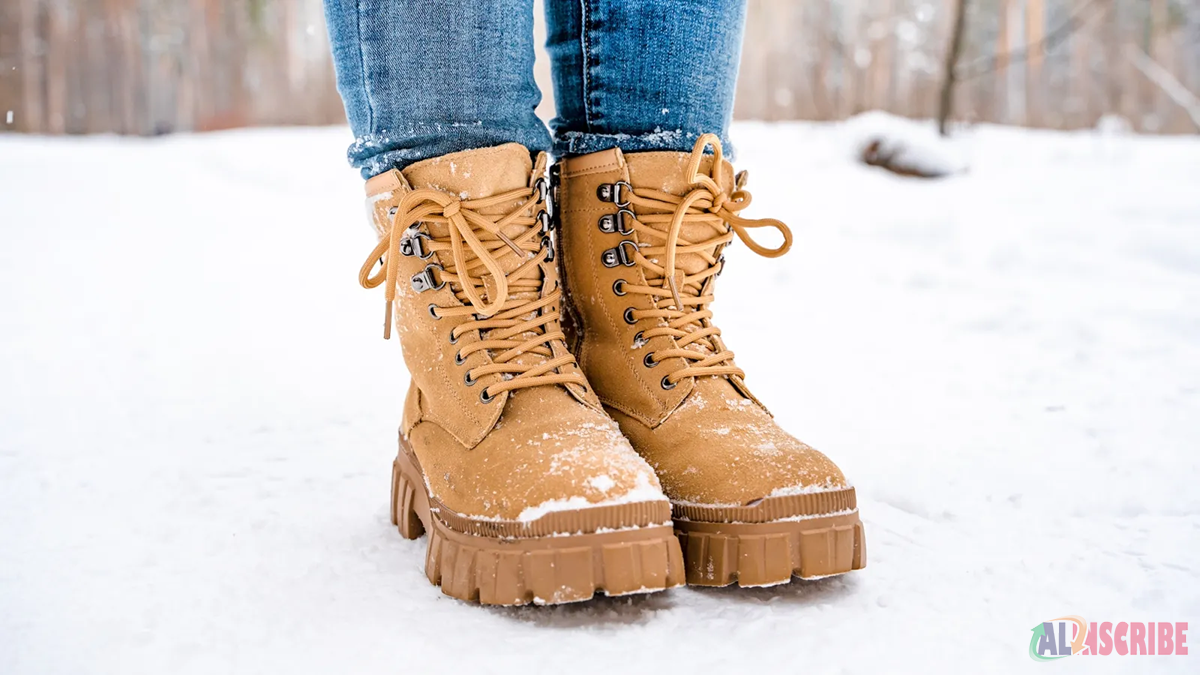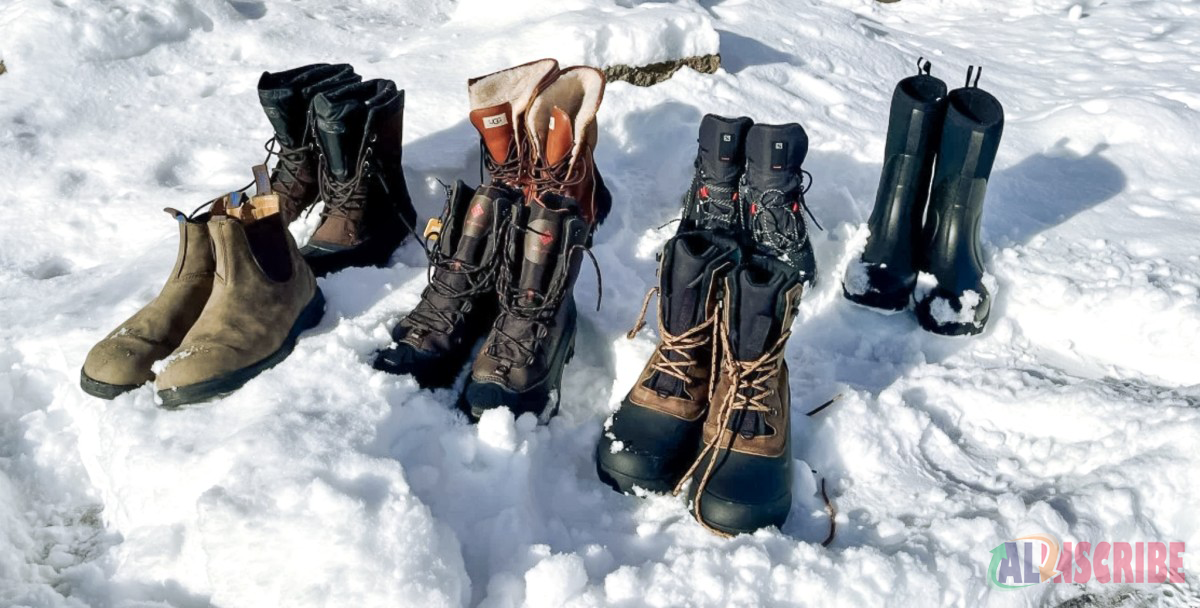Winter Boots: A Guide To Staying Warm And Stylish

Winter is a season filled with cozy nights by the fireplace, hot cocoa, and cold weather. When the temperature drops, having the right gear to keep you warm and comfortable is important. One essential item that should be a part of everyone's winter wardrobe is a pair of winter boots. This guide will explore everything you need to know about winter boots, from choosing the right pair to taking care of them. So please grab a cup of hot cocoa, sit back, and let's dive into the world of winter boots!
Introduction to Winter Boots
Winter boots are specially designed footwear that provides insulation, traction, and protection against cold and snowy conditions. They are designed to keep your feet warm and dry while offering support and comfort. Winter boots come in various styles and designs, from rugged and practical to stylish and trendy.
Why are Winter Boots Essential?
Winter boots are more than just a fashion statement. They are crucial in keeping your feet warm, dry, and protected during winter. Here are some reasons why winter boots are essential:
1. Insulation:
Winter boots are designed with insulation materials such as fleece, faux fur, or Thinsulate™ lining. These materials provide excellent insulation and help retain body heat, keeping your feet warm even in freezing temperatures.
2. Waterproofing:
Winter boots often feature waterproof or water-resistant materials such as leather or synthetic fabrics. This helps to keep your feet dry and prevents moisture from seeping in, which could lead to discomfort and cold feet.
3. Traction:
Winter boots have sturdy outsoles with deep treads or rubber lugs, providing excellent traction on slippery surfaces. This helps prevent slips and falls, keeping you safe and stable even on icy sidewalks or snowy terrain.

4. Protection:
Winter boots provide added protection to your feet and ankles. They are typically taller than regular shoes, offering better coverage and shielding your feet from cold winds, snow, and slush.
5. Comfort:
Winter boots are designed with comfort in mind. They often feature cushioned insoles, supportive midsoles, and adjustable closures to ensure a snug and comfortable fit throughout the day.
Choosing the Right Winter Boots
With a wide range of winter boots available in the market, it can be overwhelming to choose the right pair. Here are some factors to consider when selecting winter boots:
1. Insulation Level:
Consider the insulation level you need based on the climate in your area. If you live in frigid regions, look for boots with higher insulation ratings.
2. Waterproofing:
Ensure that the boots are waterproof or water-resistant to keep your feet dry in wet or snowy conditions.
3. Traction:
Look for boots with a robust outsole featuring deep treads or rubber lugs for enhanced traction on slippery surfaces.
4. Style:
Pick a style that matches your preferences and winter outfits. Whether you prefer a sleek and sophisticated design or a rugged and outdoorsy look, every style has a winter boot.
5. Fit and Comfort:
Always try on the boots and ensure they provide a comfortable fit. Consider arch support, cushioning, and adjustability options to find the most comfortable pair for your feet.
6. Durability:
Invest in boots made with high-quality materials and sturdy construction to ensure they last multiple winters.
7. Reviews and Recommendations:
Read customer reviews and seek recommendations from friends or family to gain insights into the performance and durability of different brands and models.
How to Take Care of Your Winter Boots
Proper care and maintenance can significantly extend the lifespan of your winter boots. Here are some tips to keep them in excellent condition:
1. Cleaning:
Regularly clean your winter boots to remove dirt, salt stains, and grime. Use a soft brush to wipe the exterior gently. Use a mild detergent or specialized cleaner for stricter stains, as the manufacturer recommends.
2. Drying:
After wearing your winter boots in wet conditions, allow them to air dry naturally. Avoid direct heat sources like radiators or hairdryers, as excessive heat can damage the materials.
3. Waterproofing:
Reapply a waterproofing spray or wax to maintain the boots' water-resistant properties.
4. Storage:
Store your winter boots in a cool, dry place away from direct sunlight. Stuff them with newspaper or boot shapers to maintain their shape. Avoid storing them in plastic bags, as they can trap moisture and lead to mold or mildew growth.
5. Sole Maintenance:
Inspect the outsoles regularly and remove any debris or stones stuck in the treads. This ensures optimal traction and prevents premature wear.
6. Professional Maintenance:
If your winter boots have significant damage or require specialized repairs, consider taking them to a professional cobbler or shoe repair service.

Conclusion
Winter boots are a must-have item for anyone facing the chilly winter months. They provide warmth, protection, and style to keep your feet happy and cozy. By choosing the right pair of winter boots and taking proper care of them, you can confidently navigate snow-covered streets and embrace the winter wonderland. So, find your perfect pair of winter boots because stepping into winter has never looked this good!
FAQs About Winter Boots
Q: Can I wear winter boots in the rain?
A: Yes, many winter boots are designed to be waterproof or water-resistant, making them suitable for rainy conditions as well.
Q: Are winter boots only for extreme cold weather?
A: Winter boots are designed to provide insulation and protection against cold weather, but they can also be worn in moderately cold temperatures.
Q: Can I wear winter boots for hiking or outdoor activities?
A: There are winter boots specifically designed for outdoor activities, including hiking. Look for boots with sturdy outsoles, ankle support, and waterproofing.
Q: How often should I replace my winter boots?
A: Winter boots' lifespan varies depending on usage, quality, and maintenance. On average, they can last anywhere from one to five years.
Q: Can I wear winter boots with dressier outfits?
A: There are stylish winter boots available that can be paired with dressier outfits. Look for sleek designs and neutral colors to achieve a more polished look.
Q: Can I wear winter boots indoors?
A: While wearing winter boots indoors is unnecessary, you can keep them on if you feel more comfortable or want to avoid changing footwear frequently.
Article Comments
Similar Articles
Articles Search
Sponsor
There are zero sub-categories in this parent category.
There are zero sub-categories in this parent category.
There are zero sub-categories in this parent category.
















